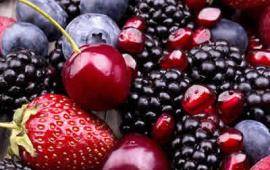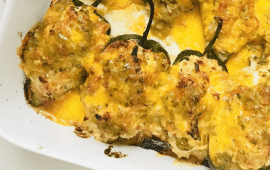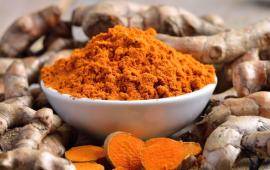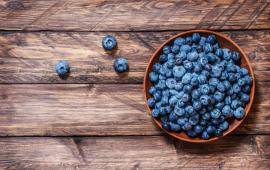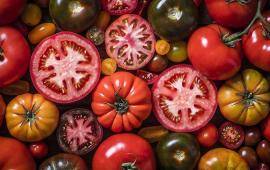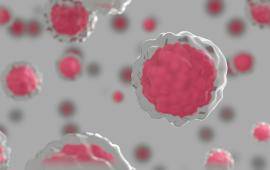
Colon Cancer Natural Treatment
Integrative treatment of colon cancer is primarily focused to reduce side effects of chemotherapy and radiotherapy, in order to have better tolerance, thus allowing chemotherapy cycles and radiotherapy to be completed without interruption.
Chemotherapy kills blood cells. It is necessary to control the immunity with white blood cell count test, since, if the count is less than 3000, chemotherapy is postponed until it reaches these levels. On the other hand, the immune system is important in the control of cancer growth and once the chemotherapy cycles have finished it is necessary to recover the normal values of white blood cells in the shorter possible time. There are Chinese Herbal formulas that boost the immune system. Intravenous vitamin C also helps to strength the immune system.
Side effects of chemotherapy such as nausea, vomiting, fatigue can improve with Chinese Herbal formulas addressed to strengthen the digestive system in conjunction with acupuncture. Intravenous vitamin C improves fatigue associated with the administration of chemotherapy.
In the treatment of colon cancer, it is very important to remove the cancer stem cells, so surgery is the treatment with the best prognosis. Chemotherapy and radiotherapy are also addressed to kill cancer cells, but they cause significant side effects and weaken the body. Therefore, recovering and strengthening the body after these treatments, helps to prevent cancer recurrences.
The diet plays a very important role to remove toxicity of the treatments and improve the quality of life.
Scientific studies on the anticancer effect of some Chinese herbs, specifically in colon cancer, such as Herba Andrographitis that has demonstrated an anti-invasive effect of colon cancer cells. Scutellaria Barbata induces apoptosis or cell death in squamous cells of colon cancer and inhibits cancer growth by disrupting enzymatic pathways. Solani Lyrati induces apoptosis of colon cancer cells and Verbena Officinalis inhibits the proliferation of cancer cells in colon cancer.
High levels of vitamin D in the blood are associated with a lower incidence of colon cancer. Vitamin D has an immune system regulatory effect.
Scientific studies on the anticancer effect of Chinese herbs in colon cancer
- Chao, H. P. et al. 2010. Andrographolide exhibits anti-invasive activity against colon cáncer cells via inhibition of MMP2 activity. Planta Med. 76: 1827–133.
- Jada, S. R. et al. 2008. Benzylidene derivatives of andrographolide inhibit growth of breast and colon cancer cells in vitro by inducing G1 arrest and apoptosis. Brit. J. Pharmacol. 155:641–54.
- Goh, D. et al. 2005. Inhibitory effects of a chemically standardized extract from Scutellaria barbata in human colon cáncer cell lines, Lovo. J. Agricult. Food Chem. 53: 8197–8204.
- Wei, L. H. et al. 2011. Scutellaria barbata D. Don induces apoptosis of human colon carcinoma cell through activation of the mitochondrion-dependent pathway. J. Med. Plants Res. 5: 1962–1970.
- Ye, R. et al. 2011. Effect of ethanol extract of Scutellaria barbata D. Don on the proliferation in human colon cancer HT-29 cells. Jiepouxue Zazhi 34: 324–6, 335.
- Lin, J. M. et al. 2014. Scutellaria barbata D Don inhibits colorectal cancer growth via suppression of multiple signaling pathways. Integrative Cancer Therapies 13: 240–248.
- Zhang, L. et al. 2014. Chloroform fraction of Scutellaria barbata D. Don promotes apoptosis and suppresses proliferation in human colon cancer cells. Mol. Med. Reports 9: 701–6
- Encalada, M. A. et al. 2015. Antiproliferative effect of phenylethanoid glycosides from Verbena officinalis L. on colon cáncer cell lines. LWT-Food Sci. Technol. 63: 1016–22.
- Hsu, S. C. et al. 2008. Crude extracts of Solanum lyratum induced cytotoxicity and apoptosis in a human colon adenocarcinoma cell line (Colo 205). Anticancer Res. 28: 1045–54.
Colon Cancer: Stages 
Estadio I: el cáncer ha crecido y atravesado la mucosa invadiendo la capa muscular del colon o el recto. No se ha diseminado a los tejidos cercanos o ganglios linfáticos.
Estadio IIA: el cáncer ha crecido y atravesado la pared del colon o del recto, pero no se ha diseminado a los tejidos o ganglios linfáticos cercanos.
Estadio IIB: el cáncer ha crecido a través de las capas musculares hasta llegar al revestimiento del abdomen, denominado peritoneo visceral. No se ha diseminado a ganglios linfáticos cercanos ni a ninguna otra parte.
Estadio IIC: el tumor se ha diseminado a través de la pared del colon o del recto y ha invadido estructuras cercanas. No se ha diseminado a ganglios linfáticos cercanos ni a ninguna otra parte.
Estadio IIIA: el cáncer ha crecido a través del revestimiento interno o en las capas musculares del intestino y se ha diseminado hacia uno a tres ganglios linfáticos, o hacia un ganglio del tumor en tejidos que rodean el colon o el recto que no parecen ser ganglios linfáticos, pero no se ha diseminado hacia otras partes del cuerpo.
Estadio IIIB: el cáncer ha crecido a través de la pared intestinal o en los órganos circundantes y en uno a tres ganglios linfáticos, o hacia un ganglio del tumor en tejidos que rodean el colon o el recto que no parecen ser ganglios linfáticos, pero no se ha diseminado a otras partes del cuerpo.
Estadio IIIC: independientemente de la profundidad con que se extendió el cáncer de colon, se ha diseminado a cuatro o más ganglios linfáticos, pero no a otras partes distantes del cuerpo.
Estadio IVA: el cáncer se ha diseminado a una sola parte distante del cuerpo, como el hígado o los pulmones.
Estadio IVB: el cáncer se ha diseminado a más de una parte del cuerpo.
Recurrente: un cáncer recurrente es el cáncer que ha reaparecido después del tratamiento.
Colon Cancer: Conventional treatment 
Stage I colorectal cancer
In general, the only treatment necessary is surgical removal of the tumor and lymph nodes.
Stage II colorectal cancer
Surgery is usually the first treatment. Cure rates for surgery alone are quite good, and additional treatments offer little benefit for people with colorectal cancer at this stage.
For patients with stage II rectal cancer, radiation therapy is usually given in combination with chemotherapy, either before or after surgery. Additional chemotherapy may also be given after surgery.
Stage III colorectal cancer
Treatment usually includes surgical removal of the tumor followed by adjuvant chemotherapy.
For patients with rectal cancer, radiation therapy may be given in combination with chemotherapy, either before or after surgery along with adjuvant chemotherapy.
Metastatic colorectal cancer (stage IV)
If cancer spreads to another part of the body from where it started, doctors call it metastatic cancer. Colorectal cancer can spread to distant organs, such as the liver, lungs, the tissue called peritoneum that lines the abdomen, or the ovaries in women.
The treatment plan may include a combination of surgery, radiation therapy, and chemotherapy to slow the spread of the disease and often temporarily shrink a cancerous tumor.
In cases of colorectal cancer, if the cancer has only spread to the liver and if surgery is possible (either before or after chemotherapy), there is a chance of a complete cure.
Ask for opinion and find an appropriate solution to your problem
ONLINE Doctor Consultation

